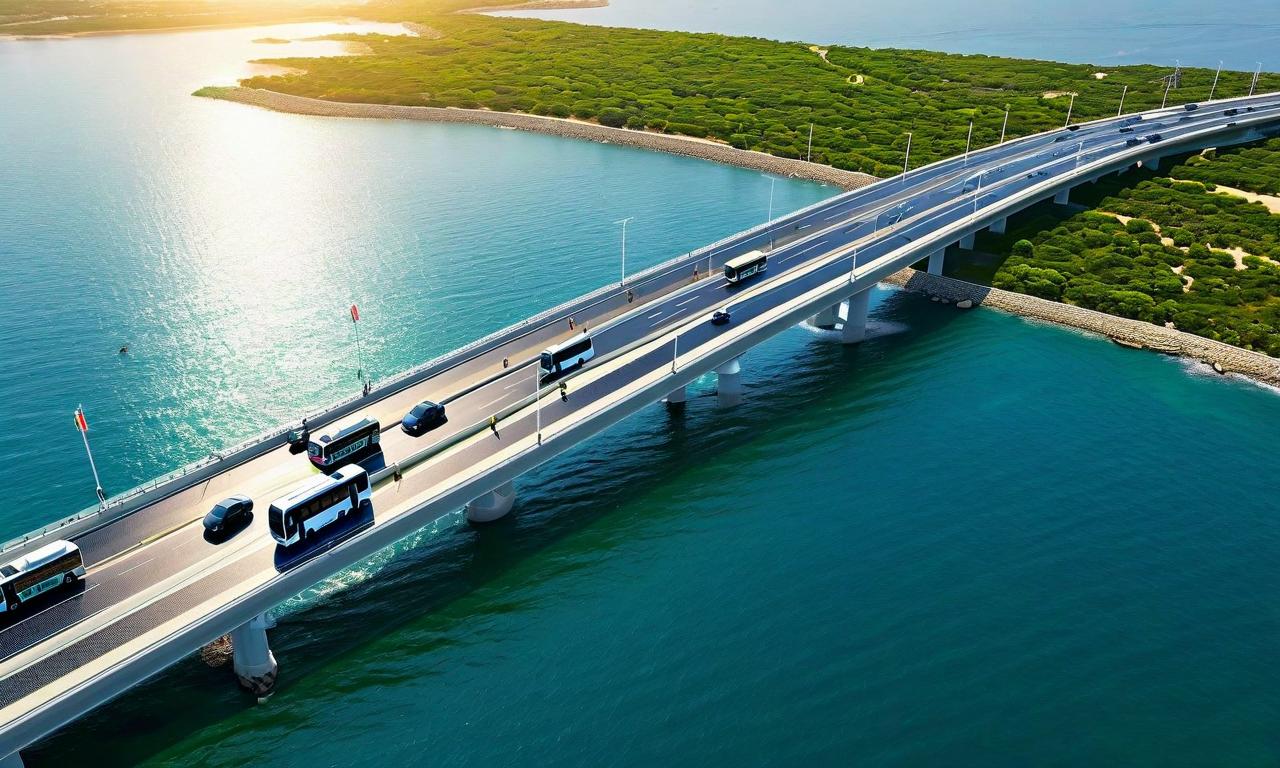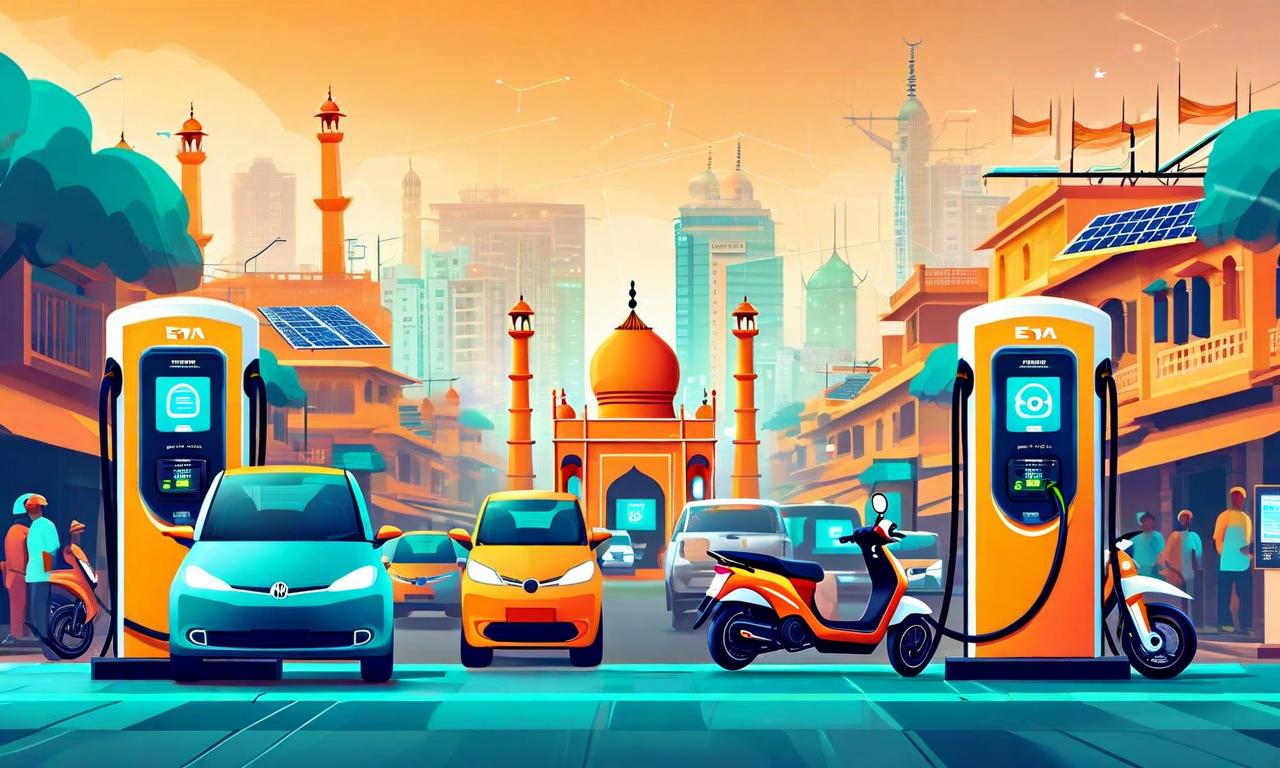Electric Vehicles Get Toll-Free Passage on Atal Setu, India's Longest Sea Bridge
The Maharashtra Urban Development Department has announced a toll exemption for electric four-wheelers and buses on the Atal Setu, India's longest sea bridge. This exemption applies to both state transport and private electric buses at the Shivaji Nagar and Gavan toll plazas. The 21.8-km Atal Setu connects Sewri in south Mumbai to Nhava Sheva in Navi Mumbai, serving as a crucial link for passenger and commercial traffic. This policy revision is expected to promote EV adoption, reduce travel costs for EV owners, and support India's clean mobility goals.

*this image is generated using AI for illustrative purposes only.
In a significant boost to the electric vehicle (EV) sector, the Maharashtra Urban Development Department has announced a toll exemption for electric four-wheelers and buses on the Atal Setu, India's longest sea bridge. This move marks a notable shift in policy, encouraging the adoption of environmentally friendly transportation options.
Key Points of the Exemption
- Vehicles Covered: Electric four-wheelers and electric buses
- Applicable Toll Plazas: Shivaji Nagar and Gavan
- Beneficiaries: Both state transport and private electric buses
About Atal Setu
The Atal Setu, a 21.8-km sea link, serves as a crucial connection between Sewri in south Mumbai and Nhava Sheva in Navi Mumbai. This infrastructure project plays a significant role in easing transportation in the Mumbai metropolitan area for both passenger and commercial traffic.
Policy Revision
This exemption represents a modification to an earlier January order that had imposed tolls on all vehicle categories using the sea link. The decision to waive tolls for electric vehicles aligns with broader initiatives to promote sustainable transportation and reduce carbon emissions in urban areas.
Implications for EV Adoption
The toll exemption is expected to have several positive impacts:
- Cost Savings: Electric vehicle owners and operators will benefit from reduced travel costs, making EV ownership more attractive.
- Incentivizing Green Transport: The policy encourages the shift towards electric vehicles, supporting India's goals for cleaner mobility.
- Boosting EV Infrastructure: Such measures may lead to increased demand for charging stations and other EV-related infrastructure along major routes.
This move by the Maharashtra government reflects a growing trend of policy support for electric vehicles across India. As cities grapple with air pollution and traffic congestion, incentives like toll exemptions can play a crucial role in accelerating the transition to cleaner transportation options.
The exemption on Atal Setu could serve as a model for similar initiatives on other major roadways, potentially catalyzing a broader adoption of electric vehicles in urban and inter-city transportation networks.






























